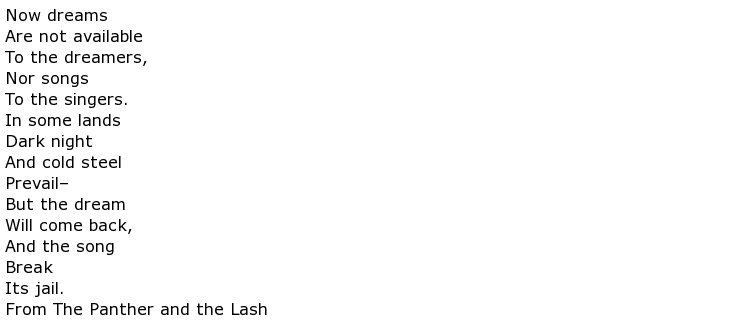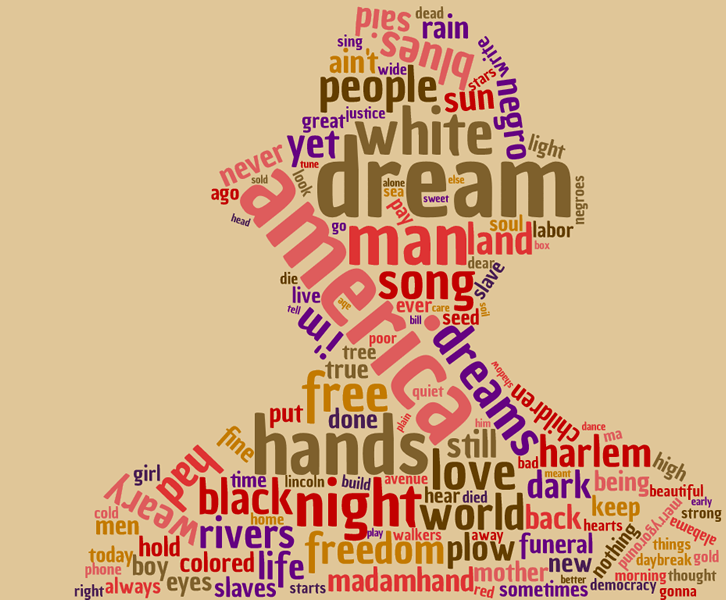 Langston Hughes was born on the first of February 1902. His full name was James Mercer Langston Hughes. He was an African American poet writing during the “Harlem Renaissance” of the 1920s, though he had some white and Native American ancestry that also had some influence on his work.
Langston Hughes was born on the first of February 1902. His full name was James Mercer Langston Hughes. He was an African American poet writing during the “Harlem Renaissance” of the 1920s, though he had some white and Native American ancestry that also had some influence on his work.
Many poets are shaped at least partly by their childhood, and this was true of Hughes. When he was young, his parents divorced and his father moved to Mexico. Though he moved in with his father for a couple of brief periods through his young life, their relationship was never good. In particular, Hughes’ father was unsupportive of his writing ambitions, instead wanting his son to study engineering abroad. Hughes also observed that he had a “strange dislike of his own people.” Hughes himself, by contrast, would go on to write many poems praising the dignity and history of black people. This can be seen in his 1920 work “The Negro Speaks of Rivers” which many consider his signature work.
The Negro Speaks of Rivers

For the most part Hughes was raised by his grandmother through his childhood years. As a young man, he travelled the world and visited a number of locations in Europe and Africa, including a stay in Paris which was a thriving centre of art and literature at that time. After returning to the US, he studied at Lincoln University before returning to live in Harlem for the majority of his remaining life.
Hughes was born at a time when black people were decidedly second class citizens in the USA, and only lived to see the early years of the civil rights movement. In spite of this, he unashamedly identified as black and thanks to the “Harlem Renaissance” – a period when the works of black artists were somewhat in vogue – he at least had less difficulty in getting his art noticed than he may have done in previous generations. However, Hughes and some of his friends were critical of certain key figures in the Harlem renaissance for being Eurocentric and accommodating the wants of the white majority in order to get their work out there. In The Negro Artist and the Racial Mountain he said:

Perhaps ironically, in light of his relative indifference to pleasing whites, Hughes’ early poems were better received by white critics than black ones. He attributed this to understandable sensitivity on the part of the black community about how their race was portrayed, making them uncomfortable with his honest portrayal of both good and bad aspects of black life. Ultimately, however, he came to be recognised as an important literary figure and one of the most vivid recorders of African American life in the first half of the twentieth century. Though he still did not shy from recording good and bad alike, his love for his own people remained clear in many of his poems. The Panther and the Lash, a volume designed to show solidarity with the civil rights movement and published shortly after his death, included poems that seemed to herald the coming of freedom and equality.
Opression



